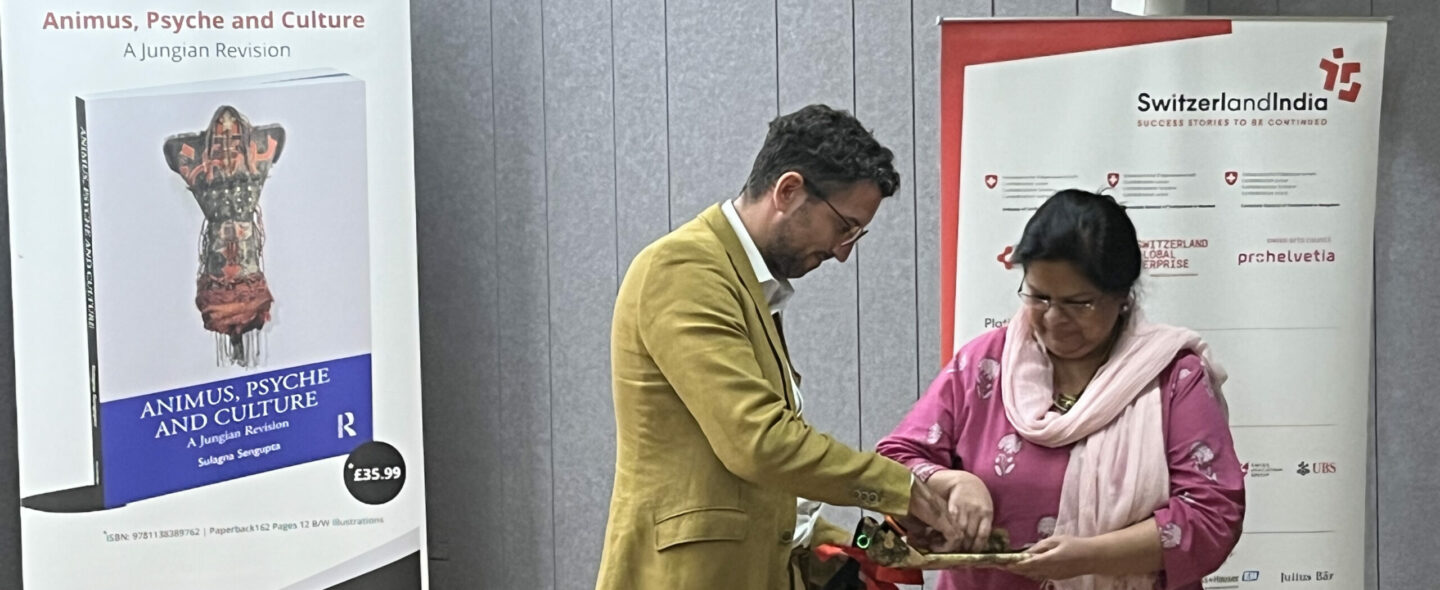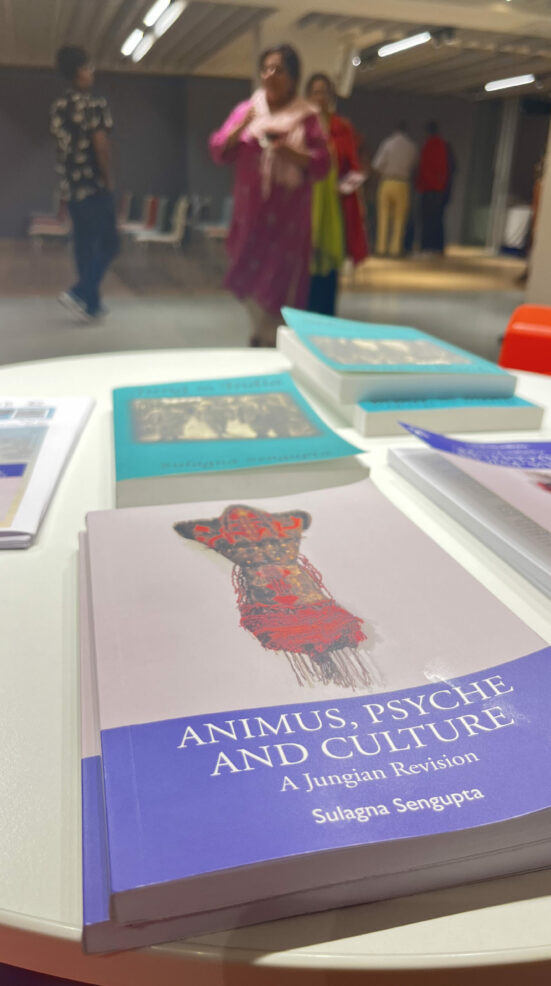
Sourabha Rao
“I hadn’t even heard of Jung until this evening, but thanks to the author, I want to learn more about him!” When a tenth grader says this about a talk, no bigger testament is necessary for its effectiveness.
Such was the simplicity with which Sulagna Sengupta, a Jungian scholar and cultural historian, unravelled Jung’s world at our community space last week, where she launched her second book, 'Animus, Psyche and Culture: A Jungian Revision'.
Punctuated with watershed moments from the past two decades that culminated in this book on the Swiss psychiatrist, her 45-minute lecture-presentation flowed with such lucidity that none needed any prior knowledge of Jungian psychology to comprehend it.
“Jung himself lived the duality of man,” Sengupta said at the beginning of her talk, delving deep into his contrasting personalities. “Being an empirical psychologist was his outward personality while inwardly, he was a deeply spiritual seeker. His experimental researches and analytic work were part of his outward personality but his inward one was interested in the natural world, in the phenomenology of spirits,” she added.
Sengupta explained Jung's time in India (1937-38) when he travelled to different parts of the country, lecturing and meeting philosophers and spiritual seekers from various schools of thought.
“Jung had close acquaintance with Sanskrit scholars and Indologists in both Europe and India. He had links with Vedanta institutions and lectured in forums for both Eastern and Western philosophers. He corresponded with Indian philosophers and spiritualists for many decades,” Sengupta revealed.
She went on to add that Jung’s relations with India formed the basis of a transcultural and transdisciplinary psychology as it included symbols, myths, religion, philosophy, art and iconography, alongside scientific inquiry and tests.
“While based on empirical research, actual encounters and dialogue with Indians, his work goes beyond traditional science, and has special significance given the colonial backdrop in India during the time,” she said while setting the context to her book.
'Animus, Psyche and Culture: A Jungian Revision' provides an insight into the inner masculine in the feminine psyche. It demonstrates the lived experience of the feminine in culture and the concept of synchronicity, and the phenomena of the ‘animus’ in the collective unconscious among other things. Equally importantly, Sengupta positions these concepts in today’s world, by even adapting them to the present reality of gender fluidity.
What was particularly inspiring about Sengupta’s talk was the quiet audacity with which she illustrated the tagline of the book, ‘A Jungian Revision’. After spending the last two decades researching Jung, she offers in this book an oppositional view – a revision – of his idea of the ‘animus’.
During a lively Q&A session with the audience, Sengupta discussed the significance of genuine seeking over believing, of not letting hyper-politicising of ancient collective wisdom taint our search for the enduring understandings of our own existence.
Remarkably, she revealed that this writing journey of 'Animus, Psyche and Culture' began from a dream of a tribal totem she had nearly 20 years ago. They say a master yearns for a discerning disciple just as deeply as a student longs for a selfless guru. And in Sengupta, Jung has found one posthumously, a dream that has translated to reality in more ways than one.
Sourabha Rao

